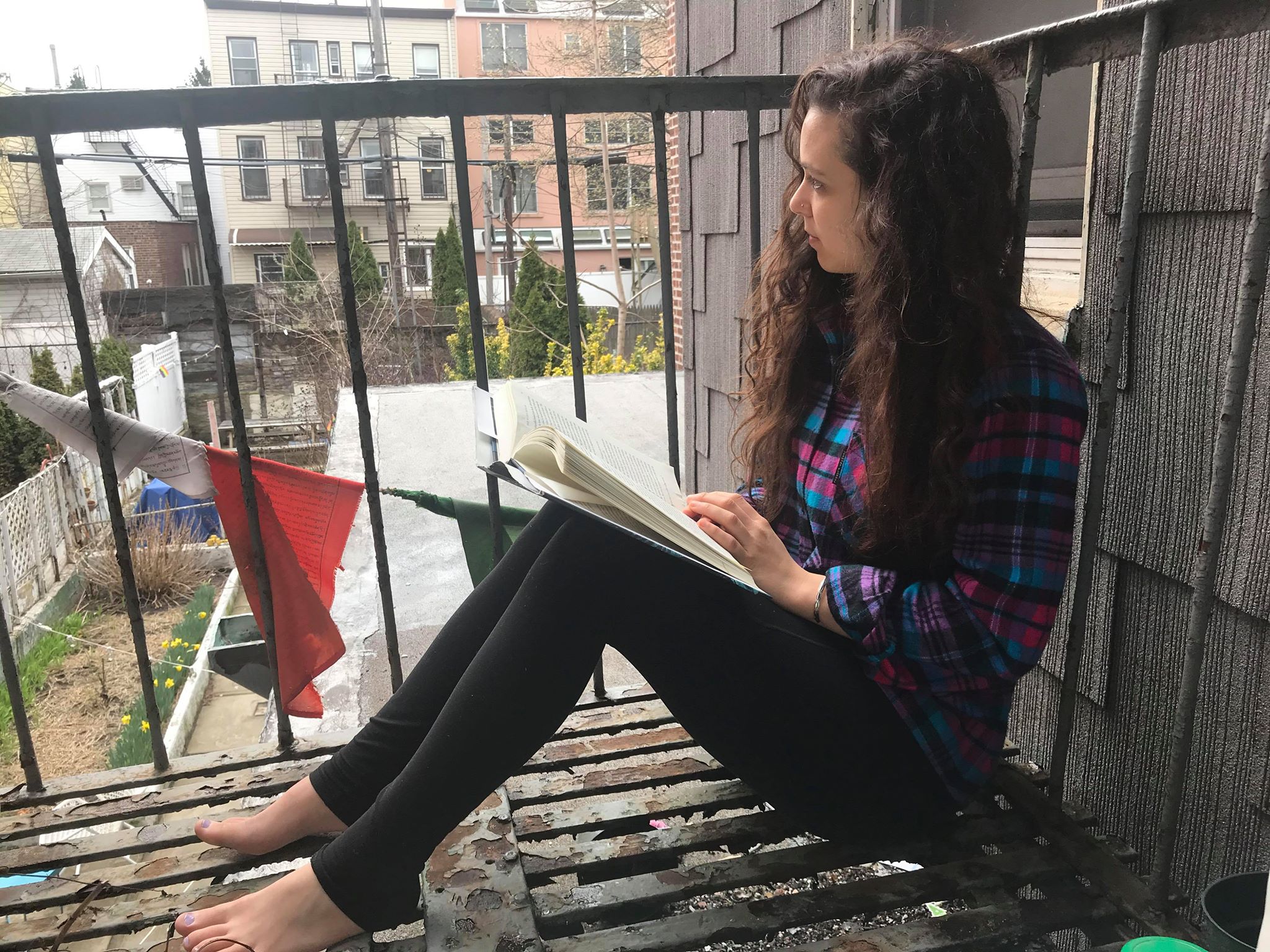

Share
New York City is slowing down. We are resisting half heartedly; some young folks refuse to let go of brunch and parents hang on to the last times they may have at the playground for a while. I am alternately annoyed and understanding of the resisters. After just two days, being cooped up in my tiny Brooklyn apartment feels impossible. My roommates and I are doing our best to stay sane. Between climbing out of our fire escape for some fresh air and venting over matzah ball soup, we’re keeping it together. The days are a strange tsunami of news filtering through our phones. Countries close down with the speed of a light switching off. I am operating on emergency status as friends and family members message about their various economic and health hardships. And I can do nothing but send heart emoji’s and silly meme’s and count how many bags of rice I have.
I have sympathy for the families taking space from their kids and for the young brunchers at a restaurant that probably needs their support. I relate to the nostalgiaor, well, what was only last weekend. In only a few days, we have gone from “maybe it will come here” to streets emptying and businesses closing. The brunchers and the parents will be forced to end the naiveté soon anyway. I am saying farewell to the rhythm I used to know here. It’s a many layered grief. I grieve for the lives lost and endangered, for the family restaurants closing, for the art and yoga and theater studios put out indefinitely. I grieve for the people who are still working; delivering mail, cleaning the subways, working security. I grieve for those stuck inside with unsafe family conditions. I grieve for a government whose ego is only matched in size by their absolute irrelevance to health and safety. I grieve for the lack of human touch when I most want to reach out.
At work, things are uncertain. I am a community educator for a non-profit that operates within public middle schools. The past week has been heartbreaking. I used to joke about teachers not being valued, but now any humor in it is lost. I am already underpaid for the supposedly high social responsibility of children’s education, and now I am among the last group protected in the face of a global health crisis. I spent the day worried I would have to use my limited paid time off to cover days staying inside. Perhaps, I should be less surprised at the inequality laid so completely bare by the pandemic. I watch as the least vulnerable members of this city receive the most benefits. I am oddly comforted because this, at least, is familiar. Friends who work with corporations, in the tech industry and in private schools have been working at home for weeks. Those with the highest salaries and best health care packages are ahead in pandemic preparations. They have set up home offices, contacted their families or packed bags to head out. Meanwhile, the public school system made it clear that teachers are disposable. No one denies how enormous and complex the school system is, we merely ask for the basic rights of the city’s most at-risk children and their teachers to be protected.
At the very least though, there are articles about NYC public schools in the time of the coronavirus. There’s barely a word about the expendable class of people who make our city run: the people who work hourly at bodega’s and gas stations and laundromats. While many people like me, the new white folks of Williamsburg and Bushwick, take refuge outside of the city, many of the original residents stay rooted. The message to the people of color who built these communities? Here are the usual scraps. Hope for the best, I guess.
And there is light, too. I am deeply moved by my immediate community. My friends and family members are going out of their way to support their neighbors, friends and local aid initiatives. The circle of people that surround me are teachers, social workers, journalists and non-profit employees. They are people who are both at a high risk of contracting COVID19 and the first to offer up whatever they have in support of collective health. I am holding tight to the hope that people will see why healthcare for all is necessary. I sit now in the living room at my best friends’ apartment (we’ve risked the two blocks walk to each other) watching Netflix and laugh-crying over quarantine meme’s. We muse about our piles of dirty laundry and the future of tinder dating and the horror of going through a plague with no technology. It’s ridiculous and real. My phone lights up as my aunt texts me about escaping from NYC, and I am counting bags of rice again.
Jordana currently teaches middle school students in the South Bronx about healthy relationships with STEPS to End Family Violence, a domestic violence prevention organization in NYC. She also organizes with Artists Striving to End Poverty (ASTEP), Voice Theater NY, and the Hebrew Immigrant Aid Society (HIAS). She is a graduate from Bard College (2017) with a double degree in Human Rights and Theater/Performance. Jordana is a recipient of the prestigious Thomas J. Watson Fellowship (2017-18)

